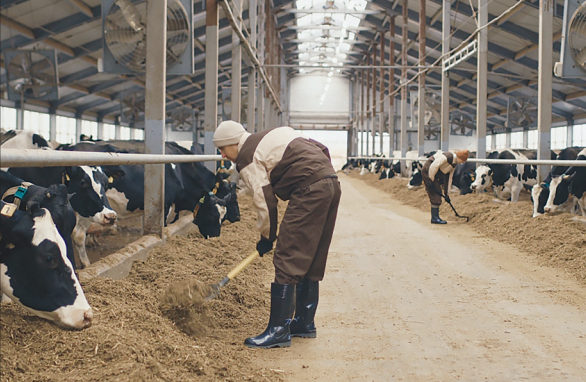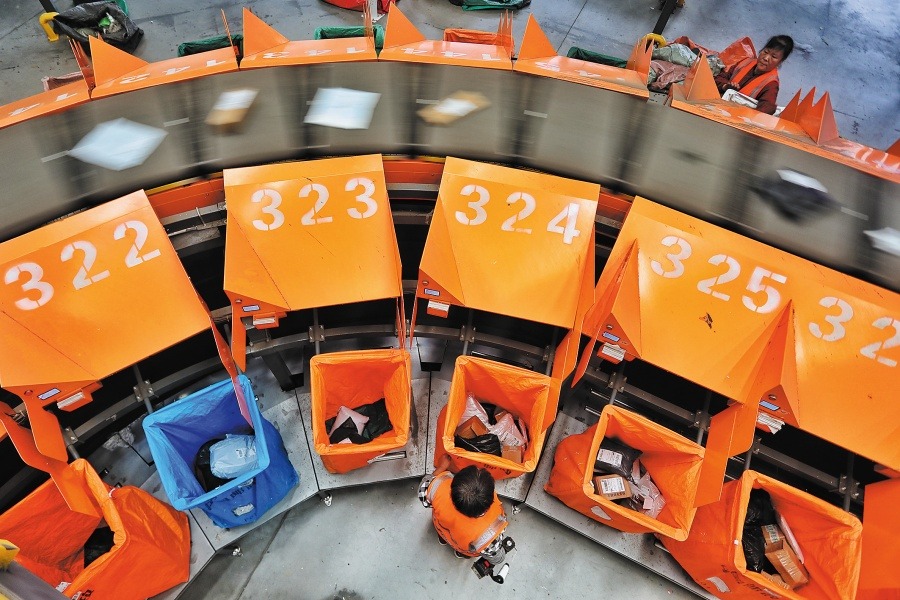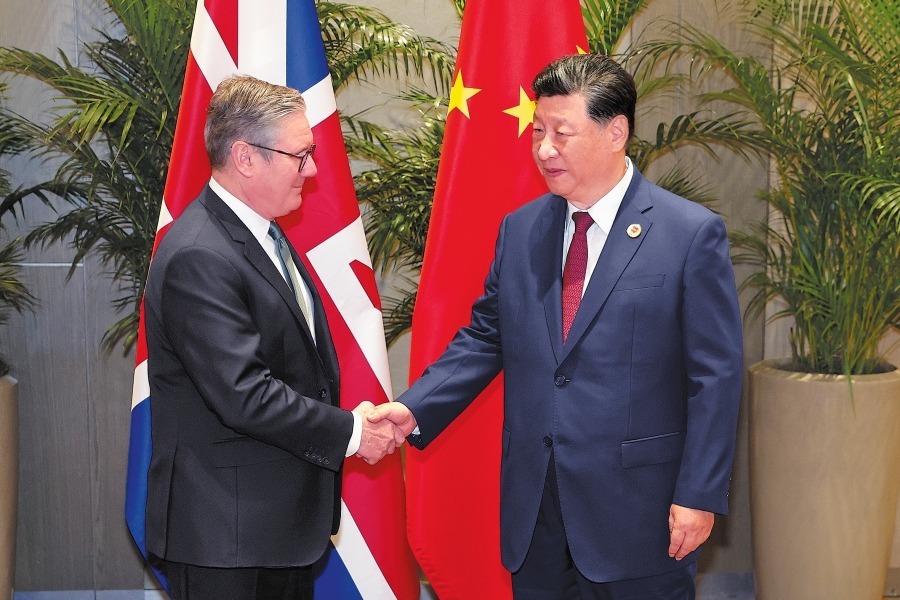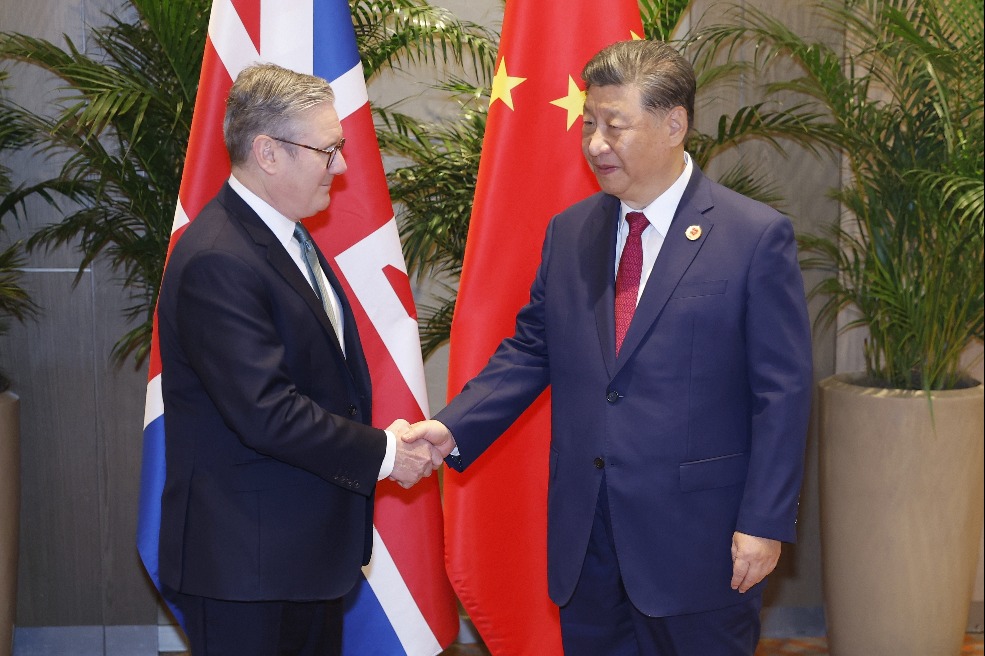British farmers warn of bitter harvest
Finances, politics and a cultural divide push the agriculture sector to the brink and stir up anger.


Agricultural anger
Given its importance on a small, heavily populated island, agriculture has a low public profile in the UK.
The knowledge of many people is limited to the unlikely hit reality television series Clarkson's Farm, featuring former host of motoring show Top Gear, Jeremy Clarkson, getting to grips with the challenges of owning a 404-hectare farm, having had no previous experience in the sector.
It has shone a light on the harsh realities of a way of life and an industry that is often taken for granted by people who rely on it, but are not engaged with it.
Clarkson has now become a figurehead for farmers' discontent, most particularly over the new government's planned reforms to inheritance tax on farms, which Webster called "a culture war that shows they have scant regard for country life".
Clarkson is set to lead the London protest.
However, he has been accused of hypocrisy, having in 2013 explained his farm purchase by saying "land is a better investment than any bank can offer. The government doesn't get any of my money when I die".
Webster drew comparisons between the disregard shown to agriculture and the miners' strike of 1984, which in many regions left toxic social divisions that endure to this day, and killed the British coal-mining industry.
"After that strike, the few mines left were private and they do well, and I think that is what could happen to British farming if things continue like this," Webster explained. "There'll be a small number of high-class farms for the wealthy, and the rest of us will have to make do with imported or factory-farmed food, with all the damage that does, and there will be nothing we can do about it."
Much of the blame, she added, could be laid at the feet of another, more recent socially divisive event in British history — Brexit.
"There are as many different versions of Brexit as there are people who voted for it — they voted for change blindfolded, with no idea what that change was," she said.
"I always knew Brexit would mean more imports of lower standard and a harder time sending things abroad to our biggest market. But I didn't bank on it delivering the worst outcome of all, trade barriers for exports and an open deal for anything coming via Europe to come here, as they didn't put checks in."
In uncertain times, failure to secure British food security has left the country vulnerable — not just subject to political events, but also to the forces of nature, such as the recent floods in Spain.
"We had the cheapest and best-quality food in the EU, we're now allowing in a fl ow of imports over which we have no control, and once that happens, you can be held to ransom," she said. "For a long time, we've been reliant on just-in-time supplies from Europe, but the Spanish floods will cause a pinch point of food supply in the coming months."
Final warning
David Catt, who runs a 28-hectare fruit and vegetable farm serving the local restaurant trade in Kent, in the south of England, knows all too well about the forces of nature, having had to sell off part of his property in the late 1980s after a freak summer hailstorm destroyed his season's crops in just 20 minutes.
The last few years, he said, have had the hardest growing conditions in 50 years, with the strain of natural challenges exacerbated by political decision-makers.
"Food is not a divine right," he said. "I'm 67, and I remember as a child going hungry because food was so expensive. (Politicians) haven't lived through that and are making decisions about things they don't understand. They expect everything available on their plate.
"For years, there's been no inheritance tax on farms for a reason — because farming is all about continuity. Forcing people to sell off land to pay inheritance tax will break up farms and make them less economically viable. It's an ill-thought-out idea from people who don't know where food comes from."
The upcoming protest, he said, "could be one of the biggest shows of dissatisfaction this country has ever seen". Almost every farmer he knows will be attending, and he said he believes they have public backing.
"Last time we protested up in London, a lot of farmers got very emotional at the level of support we received," he said. "We're giving the government a chance — we're telling them we're desperate, so they're warned."
In agriculture, what is reaped depends upon what was sown, and unless there is a change of approach soon, Britain could soon face a very poor harvest.
"My big worry is food security," said Catt. "Agriculture has been in recession for 30 or 40 years. It's at breaking point and it doesn't need to be. They need to realize that food security is key to a good economy, and a good country. You can't do anything without food."
























